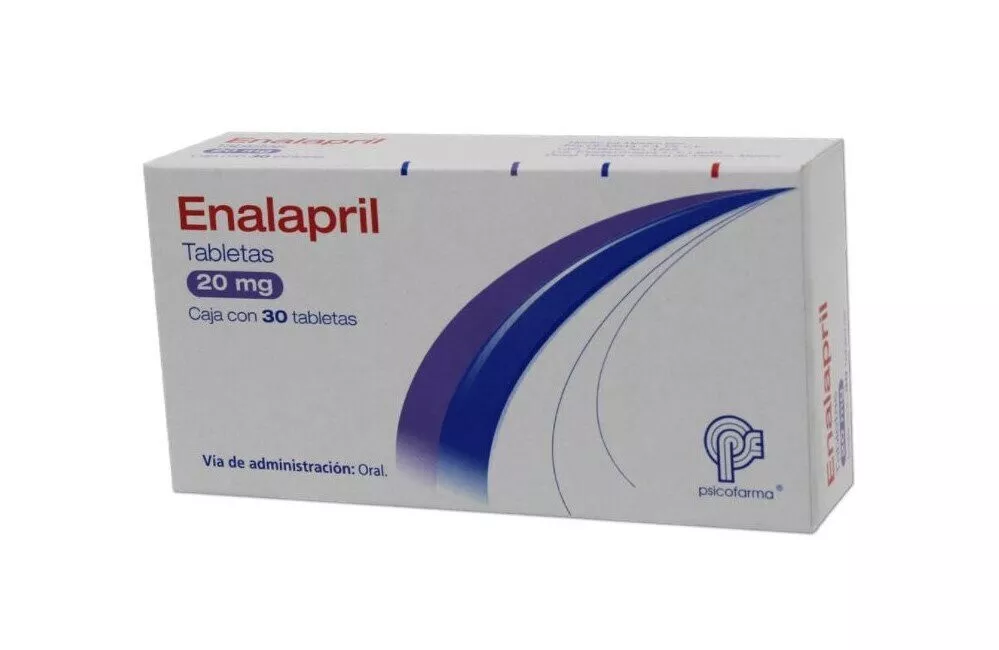Enalapril is a medication belonging to the class of drugs known as angiotensin-converting enzyme (ACE) inhibitors. It is widely used in the treatment of various cardiovascular conditions, including heart failure.
Heart failure is a serious medical condition where the heart is unable to pump blood effectively, leading to symptoms such as shortness of breath, fatigue, and fluid retention. Enalapril works by targeting specific pathways in the body to improve heart function and alleviate symptoms associated with heart failure. In this article, we will explore in detail how enalapril treats heart failure and its mechanisms of action.
Understanding Heart Failure
Before delving into how enalapril treats heart failure, it is crucial to understand the basic mechanisms behind this condition. Heart failure occurs when the heart muscle is weakened or damaged, leading to a reduced ability to pump blood efficiently throughout the body. This can be caused by various factors such as coronary artery disease, hypertension, heart valve disorders, or previous heart attacks. As a result, the body’s organs and tissues may not receive an adequate supply of oxygen and nutrients, leading to symptoms of heart failure.
SEE ALSO: 6 Treatments for Chronic Heart Failure
How Does Enalapril Treat Heart Failure?
Enalapril plays a vital role in the management of heart failure through several mechanisms:
ACE Inhibition: Enalapril inhibits the activity of angiotensin-converting enzyme (ACE), which is responsible for converting angiotensin I into angiotensin II. Angiotensin II is a potent vasoconstrictor (causes blood vessels to narrow) and also stimulates the release of aldosterone, a hormone that increases sodium and water retention. By inhibiting ACE, enalapril reduces the production of angiotensin II, leading to vasodilation (relaxation of blood vessels) and decreased aldosterone levels. This helps to lower blood pressure, reduce the workload on the heart, and improve cardiac output.
Vasodilation: The vasodilatory effects of enalapril help to widen blood vessels, which reduces the resistance to blood flow and lowers blood pressure. This is beneficial in heart failure as it reduces the strain on the heart and improves its ability to pump blood efficiently.
Reduced Aldosterone Levels: Enalapril’s inhibition of ACE leads to decreased aldosterone levels. Aldosterone promotes sodium and water retention in the body, contributing to fluid overload and worsening heart failure symptoms. By lowering aldosterone levels, enalapril helps to reduce fluid retention and alleviate symptoms such as edema (swelling) and shortness of breath.
Anti-Remodeling Effects: In addition to its hemodynamic effects, enalapril has been shown to have anti-remodeling effects on the heart.
Heart remodeling refers to structural changes in the heart muscle that occur in response to chronic stress, such as in heart failure. Enalapril helps to prevent or reverse these detrimental changes, preserving heart function and improving cardiac performance over time.
Clinical Efficacy of Enalapril in Heart Failure
Numerous clinical studies have demonstrated the efficacy of enalapril in the treatment of heart failure. The landmark study known as the SOLVD (Studies of Left Ventricular Dysfunction) trial showed that enalapril significantly reduced mortality and hospitalizations in patients with symptomatic heart failure compared to placebo.
Subsequent trials such as CONSENSUS (Cooperative North Scandinavian Enalapril Survival Study) and SAVE (Survival and Ventricular Enlargement) further supported the benefits of enalapril in improving outcomes and quality of life in heart failure patients.
Dosage And Administration
Enalapril is typically administered orally in the form of tablets or capsules. The dosage may vary depending on the patient’s age, medical history, and severity of heart failure. It is usually started at a low dose and gradually increased under medical supervision to achieve optimal therapeutic effects. Regular monitoring of blood pressure, kidney function, and electrolyte levels is essential during enalapril therapy to ensure safety and efficacy.
Side Effects And Precautions
While enalapril is generally well-tolerated, like any medication, it can cause side effects in some individuals. Common side effects may include dizziness, cough, headache, fatigue, and changes in kidney function. Rare but serious side effects such as angioedema (severe swelling of the face, lips, tongue, or throat) and hyperkalemia (high potassium levels) may occur and require immediate medical attention.
Enalapril is contraindicated in patients with a history of angioedema related to previous ACE inhibitor use.
Patients taking enalapril should be advised to avoid excessive alcohol consumption, maintain a healthy diet low in sodium, and adhere to their prescribed medication regimen. It is essential to inform healthcare providers about all medications, supplements, and herbal products being taken to avoid potential drug interactions.
Conclusion
Enalapril is an effective and well-established medication for the treatment of heart failure. Its mechanisms of action, including ACE inhibition, vasodilation, reduction of aldosterone levels, and anti-remodeling effects, contribute to its therapeutic benefits in improving cardiac function and relieving heart failure symptoms. Clinical studies have consistently demonstrated the efficacy of enalapril in reducing mortality, hospitalizations, and improving quality of life in heart failure patients. However, like any medication, enalapril should be used cautiously, and patients should be monitored regularly for side effects and therapeutic response under the guidance of healthcare professionals.

